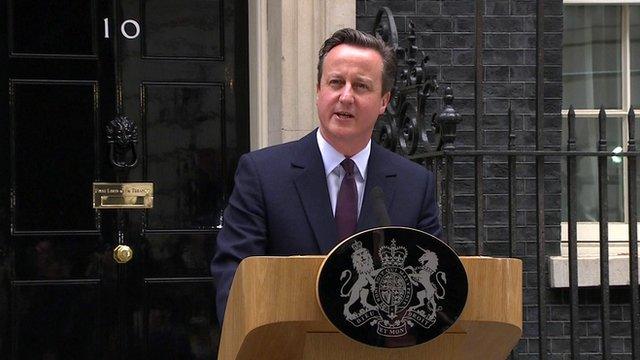Why Tory euro-tension is starting to bubble
- Published
- comments
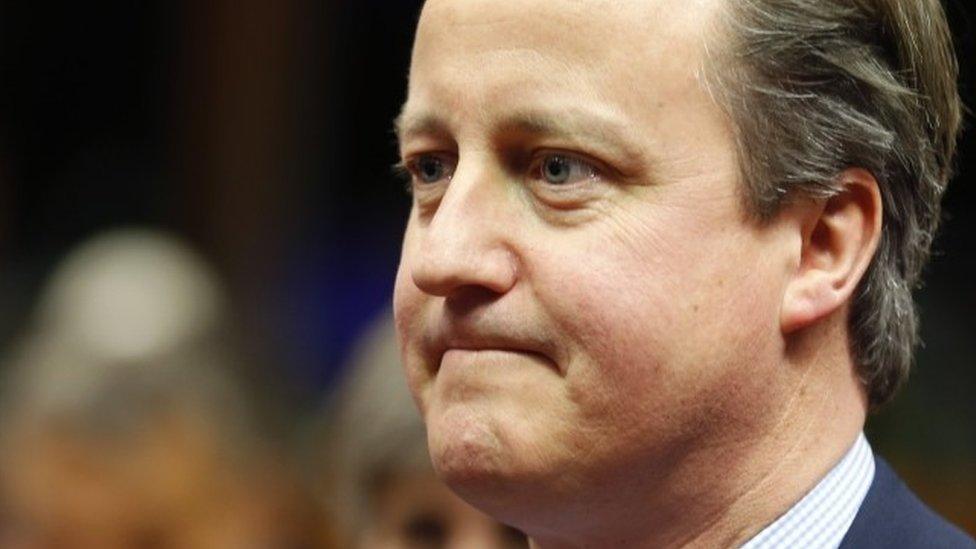
David Cameron's EU referendum promise was a vote-winner with the public but now he has to face his party
The sheer pyrotechnics of Labour's internal feuding have mesmerised Westminster, but Conservative MPs should not titter too hard at their opponents' discomfort - they have their own civil war brewing.
We got a foretaste a couple of weeks ago when Europe Minister David Lidington delivered a Commons statement on the government's demands for a renegotiation of Britain's EU membership.
The reaction from the hard core of backbench "outers" was summed up by Bernard Jenkin's dismissive comment, "Is that it?"
The government's promised in-out EU referendum was a vote-winner at the election, and probably essential to keep the lid on Tory euro-tension in the last parliament. But as the 2017 deadline appears on the horizon, it is prompting some Commons Tories to murmur of a "Corn Laws-style split" in the party.
Of course, historically, the Conservative Party has always been able to rely on a powerful instinct for unity, born of an equally powerful instinct for power.
But party history offers some warnings too. Issues that go to the heart of what the Conservative party is about can split it, and have split it.
Ghosts of Peel
In the 1840s, it was agricultural protection and the move to abandon the Corn Laws which protected the incomes of landowners.
In the 1900s, it was imperial protection and the idea of moving away from free trade to a customs union with the countries of the Empire.
And ever since the UK joined the EU, a growing - possibly now a majority - faction of the party has wanted out.
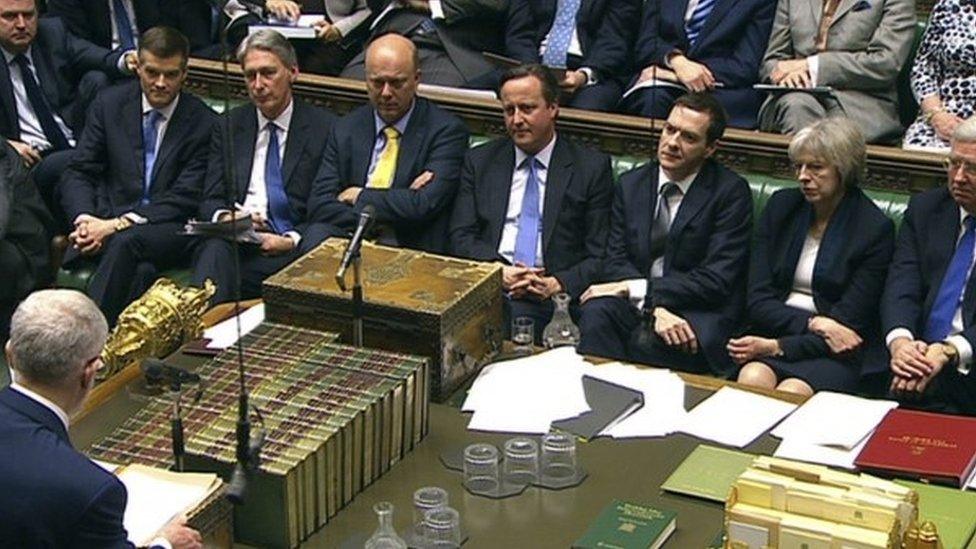
How will the Tory front bench react as party unity comes under strain?
Those splits destroyed Tory governments - conjure up the ghosts of Robert Peel or AJ Balfour, ask John Major about his cabinet rebels, external - and recall that party management has never been David Cameron's strongest suit.
Next time, the dynamics of the promised referendum suggest that it could pull the Conservative party apart again.
The scenario works like this: polling suggests that, without substantial change in the UK's membership terms, the British public will vote to leave the EU - with immigration a particularly crucial area.
But most people will not assess the small print setting out changes to an intricate and little understood institutional structure.
Instead, they will look to figures they trust to tell them whether enough has changed. And in particular, that means Mr Cameron.
His will be the crucial voice in any effort to persuade the voters that he has delivered acceptable terms. This week's tough talking to other EU leaders on benefits for EU citizens is a public display of political hardball, for UK consumption, as well as an attempt to underline his determination.
But, assuming he does campaign to keep the UK inside the EU, the referendum will turn on how voters react when he says to them, "Trust Me."
Incredulity
The "out" side of the argument will have no option but to attack his personal credibility. Tory toes are already creeping across this line.
If you listen carefully to interviews by some "outers", they praise his past successes and talk about how his place in history has been secured by his victory in May. It's a subtle point, but what they're not doing is banging the normal party gong and hoping he will rule forever. And soon they will go further than that.
And for the prime minister and his heir-presumptive, Chancellor George Osborne, if they do - as seems almost certain - campaign to maintain British membership, the referendum will become a struggle for survival.
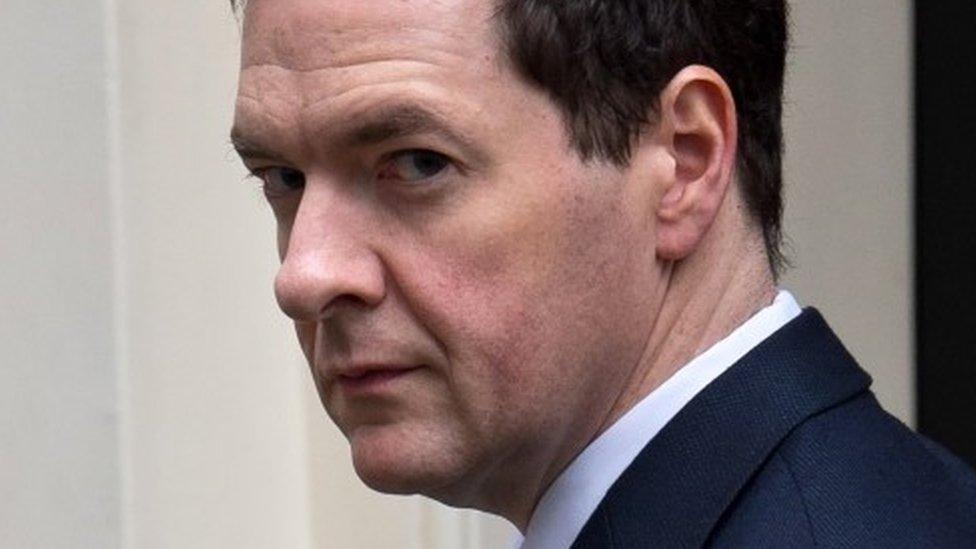
The EU referendum is also a critical moment for George Osborne's political ambitions
Whatever they say, the idea that they could campaign to stay in, then, after a vote to leave, pick themselves up, dust themselves down and negotiate the terms of a so-called Brexit, is met with frank incredulity.
In the anti-EU ranks they are quite clear - if their team wins, they'll hoist the trophy, run the victory lap and provide the captain.
Combine the certainty of attacks on the PM's personal credibility with the struggle for factional survival that's facing the current magic circle of the Conservative Party, and you have a sinister brew of malice and ambition certain to corrode Tory unity.
The more so if Labour is languishing in the polls with problems of its own.
Handbrake turn
Expect purges and punishments to be the order of the day. And whatever the referendum result, we know that there will be a Tory leadership campaign at the back end of this Parliament - into which this poison will seep.
In some ways, the worst-case scenario for Tory unity is a narrow vote to stay.
Scotland does not provide an encouraging precedent - a No to independence by an 11% margin has fed, rather than slain, the SNP.
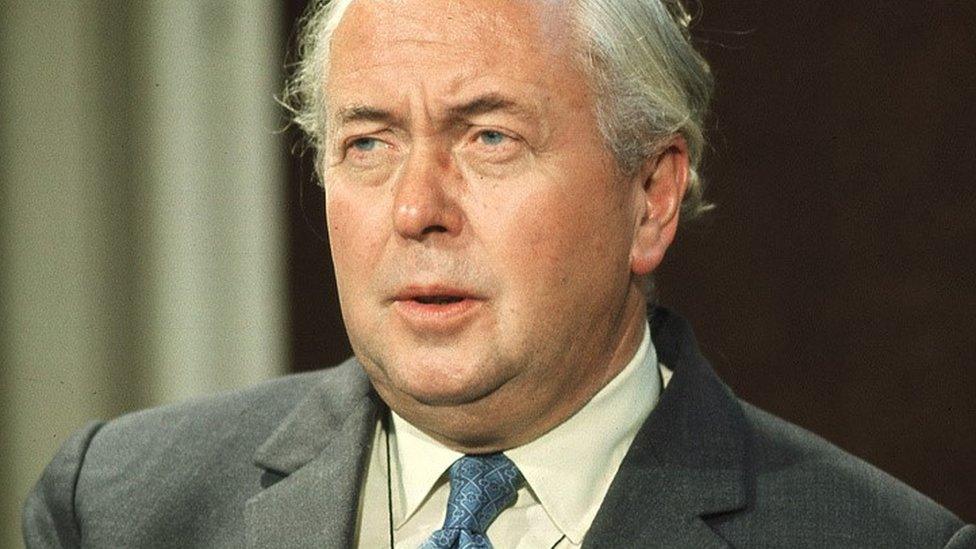
Harold Wilson campaigned to keep Britain in the EEC - and later fought an election on a commitment to leave
A tighter result in an EU referendum could allow the "out" side to sustain a "we wuz robbed" mentality and treat the forthcoming leadership election (Mr Cameron has said he won't serve another term as PM) as a continuation of the referendum by other means.
A Conservative MP reminded me the other day that in 1975 Labour Prime Minister Harold Wilson campaigned for and won a mandate, external to keep Britain in the then EEC in a referendum - but eight years later his party fought a general election on a manifesto commitment to leave.
Parties, he said, can turn on a sixpence when they have to, even if such a handbrake turn can fling some passengers out of the vehicle altogether.
All of which raises the question, as the country staggers towards the 2020 general election, will there, by then, be any functional UK-wide political parties left?
- Published3 December 2015
- Published4 December 2015
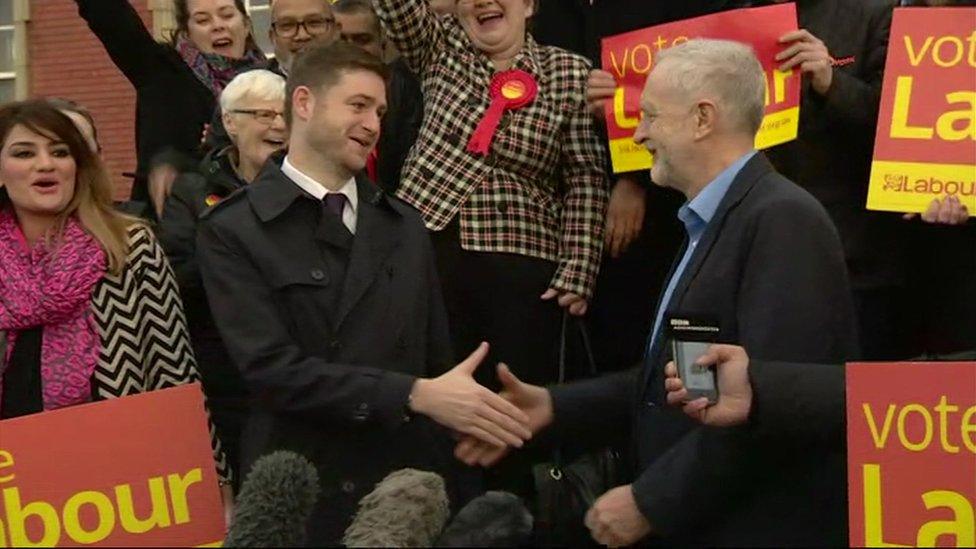
- Published9 November 2015
- Published19 March 2016
